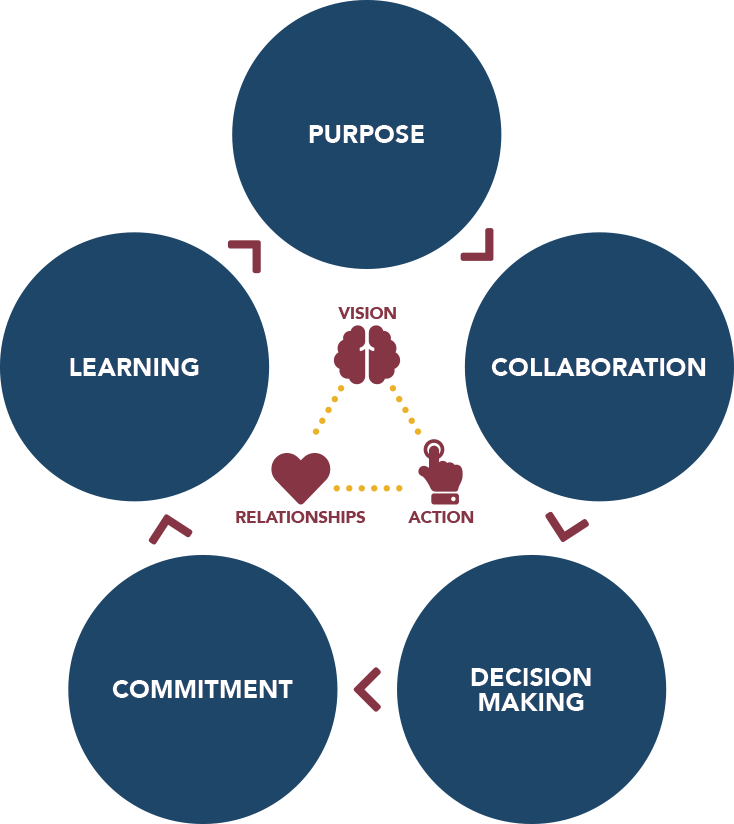30 second summary:
One of five characteristics of high performing teams is trusted decision-making - a vital skill to master whether you are the team leader or a team member.
Here, Cora Lynn Heimer Rathbone discusses the importance of making and executing decisions, suggests a process for confident decision-making, and shares seven truths for business leaders making decisions in today’s uncertainty.
One of five characteristics of high performing teams is trusted decision-making. The ability to make and execute decisions has also been named as leaders’ most important success factor by 30% of over 150 canvassed leaders. The ability to make and execute decisions is a hallmark not only of leaders but also of great teams.

Leaders rise because they are great at thinking through situations, taking and actioning decisions, building and fostering relationships. Without decisions, there is nothing to action. Without actions, there is nothing to lead, nothing to make happen!
Even if decisions are wrong, when (a) taken in “good faith” (which usually means in the best interest of those concerned, not primary in the interest of the decision-maker), (b) informed by the facts (therefore to a degree objective), (c) balanced by the values of stakeholders (therefore to a degree compassionate) and taken in good time, decision-makers are likely to be “trusted” – a vital value in any equation of what makes leaders successful. Contributing to “trust” is the ability of decision-makers to stick to their decisions, especially in the face of opposition. The question here is: “Have you got the conviction to stick to your decision?” In other words: “Are you consistent? Is your “yes” a “yes”, your “no” a “no” so I know where you stand and where I can stand relative to your decision?”
For sure consistency underpins integrity – the holy grail of trust and leadership.
Take a closer look at this final point – consistency which is more measurable than integrity.
Consistency is significantly challenged during uncertainty and volatility and importantly, consistency of decision-making is very hard to achieve. Leaders today lack clarity around facts and expert opinion, are batting away a surplus of conspiracy theories, observe different approaches by other leaders, fight constant accusations of “fake news”, and try hard to influence within the fish-bowl of social media which fuels mass demonstrations. Unequivocally, it is ultra hard for leaders to “stick to decisions” to the same degree that they could in the past. Facts and “reasons” are in question. “Social proof” varies. Stakeholders’ values are strongly held and increasingly diametrically opposed.
In making decisions, leaders have to hold opposing truths at the same time and still function (e.g. saving lives and saving the economy; creating safe office spaces and returning to full momentum). They also have to reassure followers that when they change decisions it is because the facts have changed and so their decisions must follow.
Seven perennial truths hold strong for leaders making decision in today’s uncertainty:
- Establish urgency for major decisions – the “why” of the decision. Unless we as people sense the need or urge to do something different, we’re likely to stick to the status quo.
- Paint a clear vision of the end-game of that decision – what reality the decision will deliver/create that is different to the situation at present.
- Seek diverse views to avoid group-think. “For by wise guidance you can wage war, and in abundance of counsellors there is victory.”
- Build a strong enough coalition to execute on the decisions/change you as leader envisage. “If you want to go fast, go alone. If you want to go far, go together.”
- Communicate more than you think necessary – even to a factor of 10.
- Aim for transparency – as much as the leadership circumstances permit. Followers are more likely to “buy-into” a decision when they see what is behind it than when the leader, for all intents and purposes, just says “trust me”
- Show you care, show compassion. As someone said recently: “Because I know that you care, I’ll care about what you know.”

Book an exploratory call to find out how we can help you unlock your business potential.
Don't miss our latest insights
Subscribe to our Resource centre
Other articles that may interest you:

5 Factors To Formulate Teamwork
The CEO of a mission-critical organisation said to me at the end of a team strategy day I’d facilitated: “I haven’t got it yet – the formula for ho...
Read more
9 Things You Need to Know about Effective Leadership
Pulling it all together, people today are crying-out for leaders they can trust – trust to speak the truth, trust to protect what we value, and tru...
Read more
What is Trusted Decision-Making, and Why Does It Matter?
That combines facts with diverse perspectives to unleash creativity and foster a sense of fairness. (This requires thinking, relationship and actio...
Read more